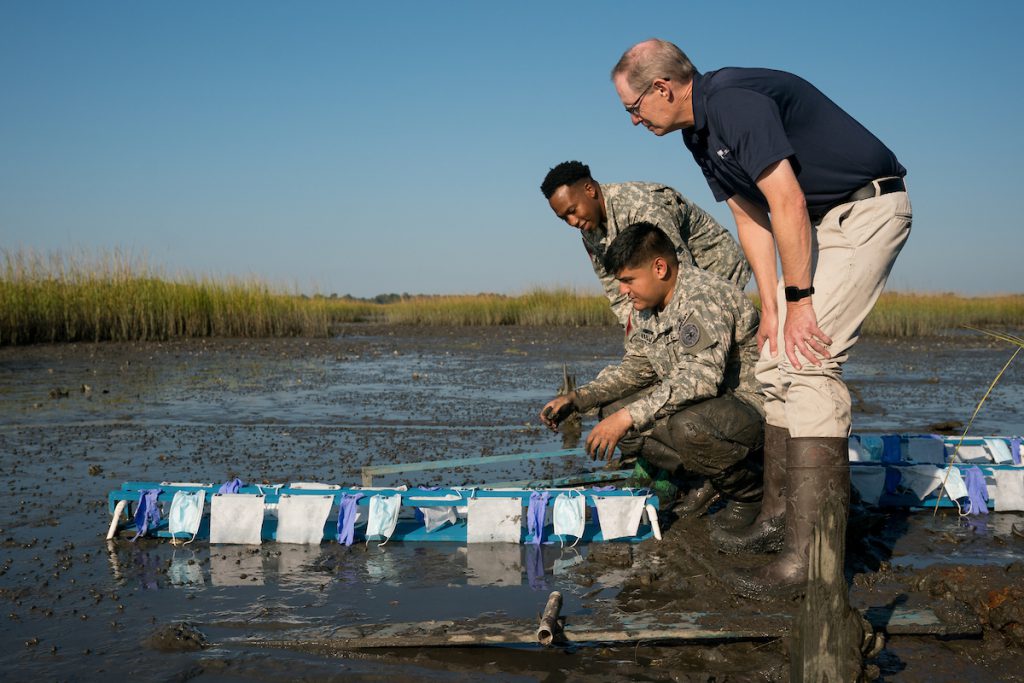
Photo above: Cadets Jerry Higgins and Douglas Karam, accompanied by Dr. John Weinstein, Biology, deploy an experiment to measure how face masks, rubber gloves and hand wipes decompose in the salt marsh on Thursday, October 14, 2021.
Internationally noted professor of Biology at The Citadel, John Weinstein, Ph.D., is leading change through ongoing environmental toxicology research into the impacts of degrading plastics, tires, biodegradable plastic (that really isn’t), and now personal protective equipment on waterways and marine life.
The research is conducted by undergraduate cadets and graduate students, in conjunction with funding Weinstein and the college have received from the S.C. Sea Grant Consortium, National Science Foundation and other sources.
Several continuing projects are underway, with the most recent being a study into personal protective equipment (PPE) waste and its impacts on sea life, and how such micro plastics in the marine food chain may also impact human health.
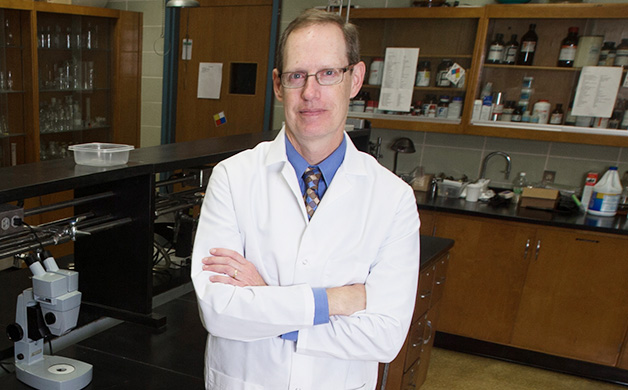
One of the first comprehensive findings from Weinstein’s research earned global attention with evidence proving that plastic refuse in coastal environments breaks down into micro-particles much more rapidly than previously understood, and that the plastic spheres are commonly ingested by tiny grazing sea creatures, eventually killing them or ending up in the food chain.
The work demonstrates that microscopic plastic particles can be just as hazardous to sea life as whole plastic bags and other larger debris, and that beach and marsh clean up sweeps are needed frequently to remove plastic waste as quickly as possible after it enters the salt marsh environment.
News reports and publications
Citadel cadets, professor launch investigation into PPE on Charleston marshes
WCBD-TV
Citadel professor finds not all plastic is equal in study on decomposition
The Post and Courier
Company accused of polluting ocean with plastic has an ally: SC ports
The State
Degradation of bio-based and biodegradable plastics in a salt marsh habitat: Another potential source of microplastics in coastal waters
Marine Pollution Bulletin
Would you believe that microplastic particles from tires are making their way into our oceans?
@Pattrn (The Weather Channel)
Following up: Thoughts from Dr. John Weinstein after plastics pollution discussions with French leaders and scientists
The Citadel Today
Weinstein research used as reference in Charleston single use plastic bag ban
The Post and Courier
Tires, the plastic polluter you never thought about
National Geographic
The Lowdown: Plastics Research
OHM Radio
Pondering Plastic – Wildlife, Bans and Trash
South Carolina Public Radio
Traces of plastic found in Columbia’s drinking water and rivers: researchers not surprised
The State
Tire particles found in Charleston waterways, researchers say
WCIV-TV, ABC4
Diseases form the sea being studied by 3 South Carolina colleges.
The Post and Courier
Tires: An Emerging Threat to Our Waterways, Our Seafood, and Ourselves?
National Resources Defense Council
Car tires and brakes spew harmful microplastics
Science News for Students
Plastics: The Final Straw?
Gimlet Media
Plastic scraps from Charleston Harbor make for trashy art
The Post and Courier
New South Carolina water pollution research from The Citadel points to tires, eco-plastics.
The Post and Courier
The global plastic breakdown: how microplastics are shredding ocean health
Coastal Heritage newsletter
Awash in wastes; Study says tons of plastic in Charleston Harbor
The Post and Courier
Report finds tons of plastic in Charleston Harbor
Washington Times
Plastic bag ban on Isle of Palms has Council support, officials say
The Post and Courier
Trash in the water ends up in the drink; The Citadel studies how much
The Post and Courier
The problems with plastics in S.C. waters
The Times and Democrat, from The Post and Courier.
Study says tons of plastic in Charleston Harbor. The Post and Courier and 30+ other news outlets nationwide
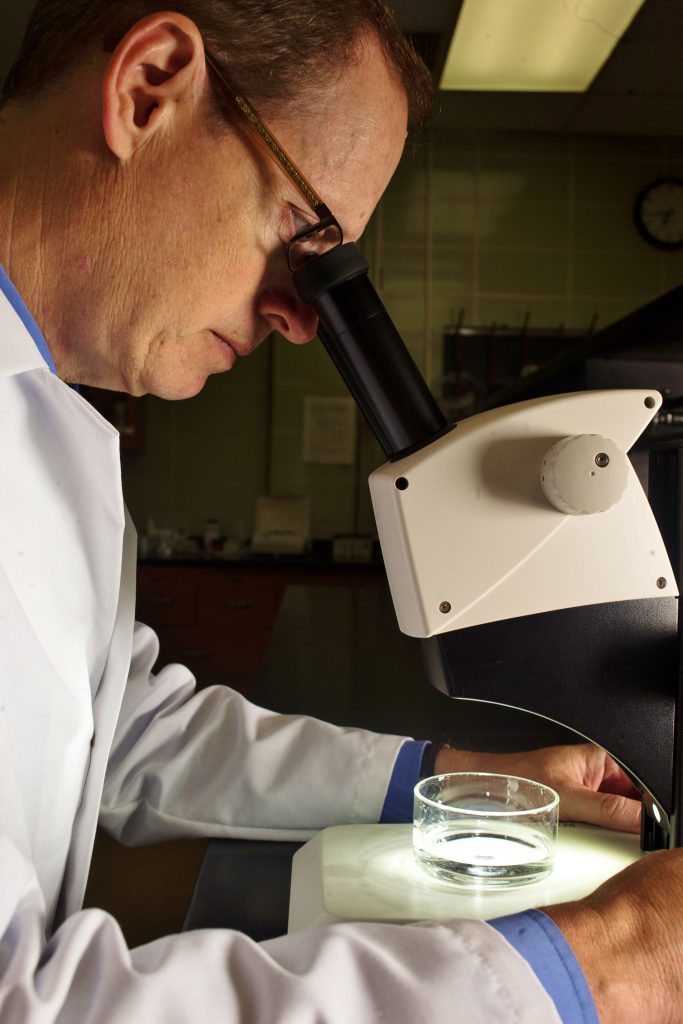

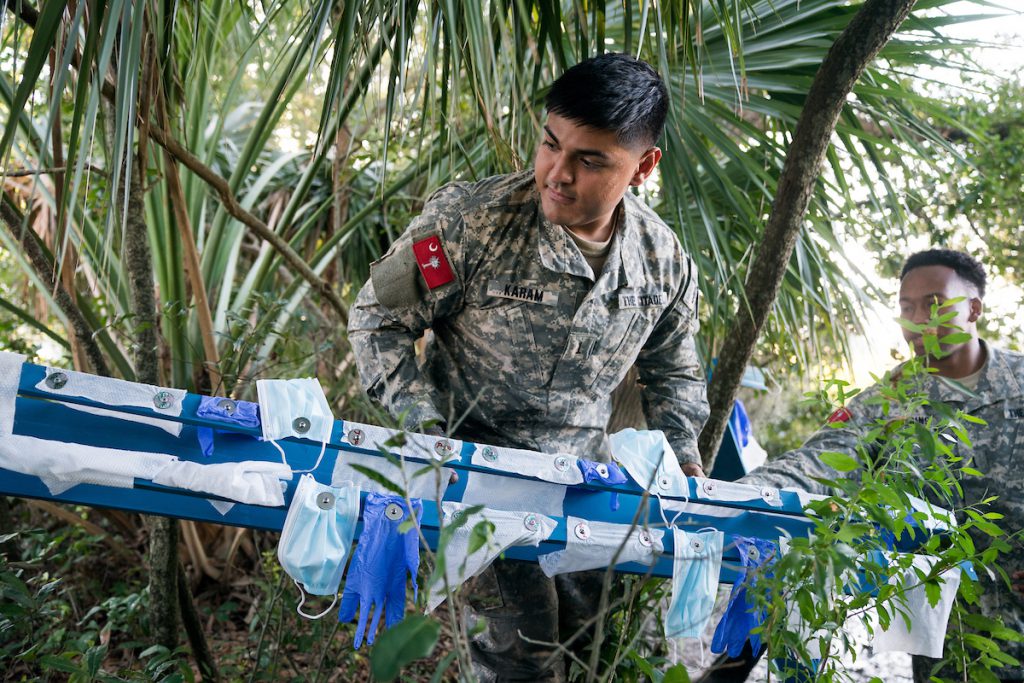
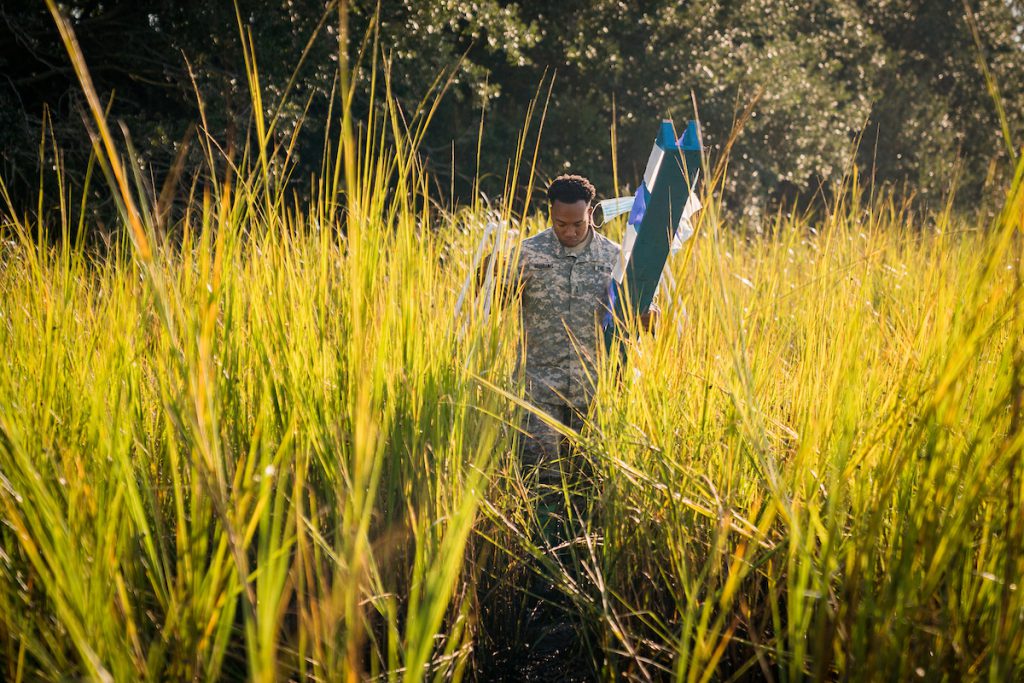
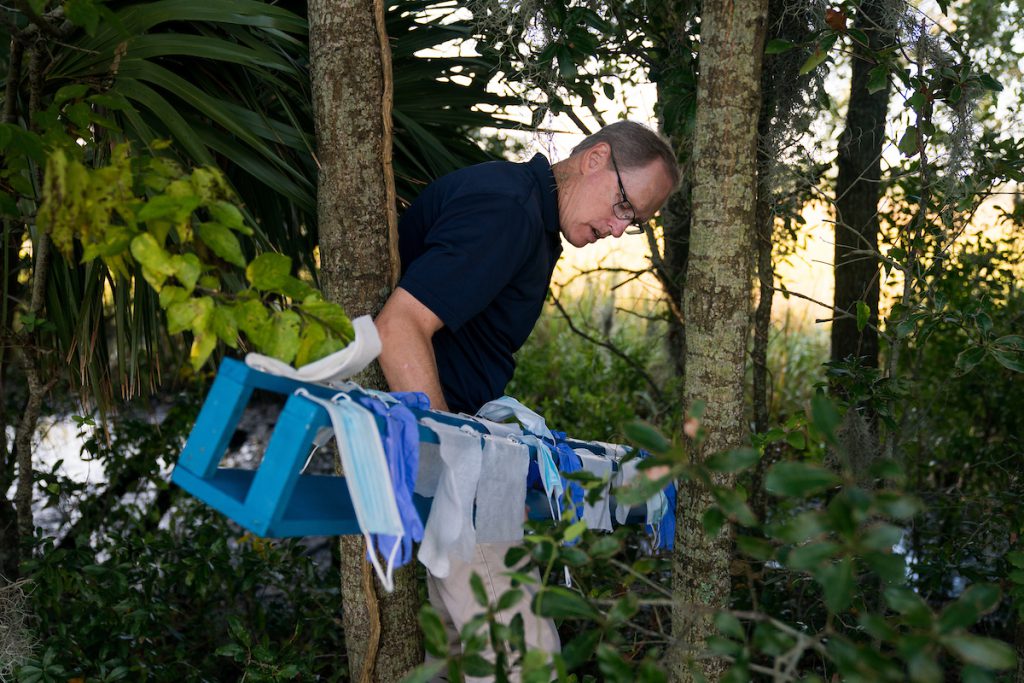
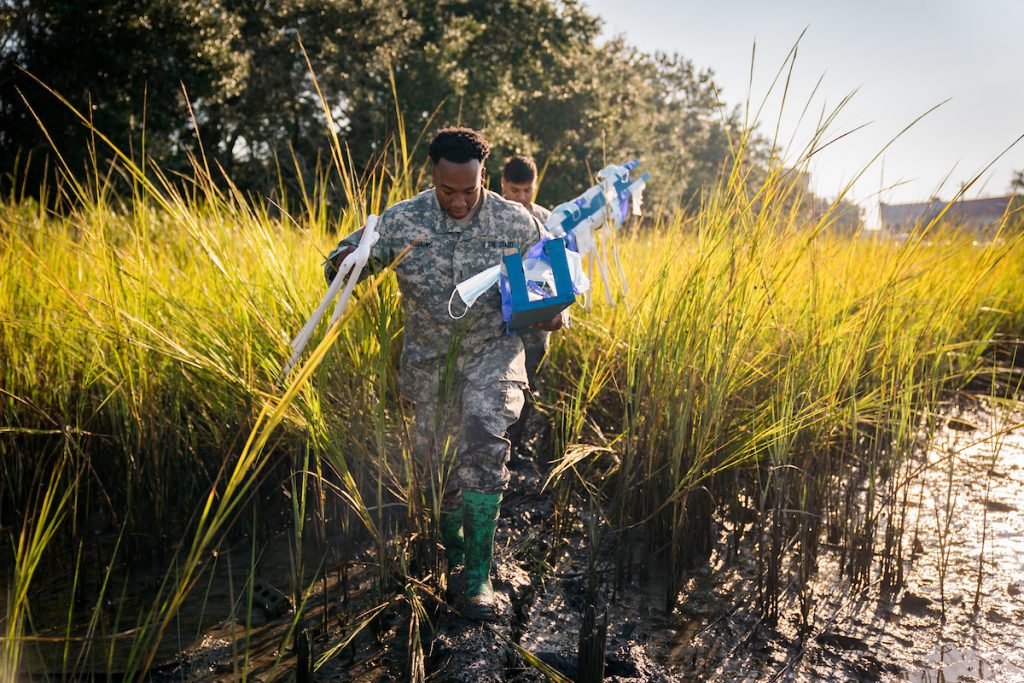
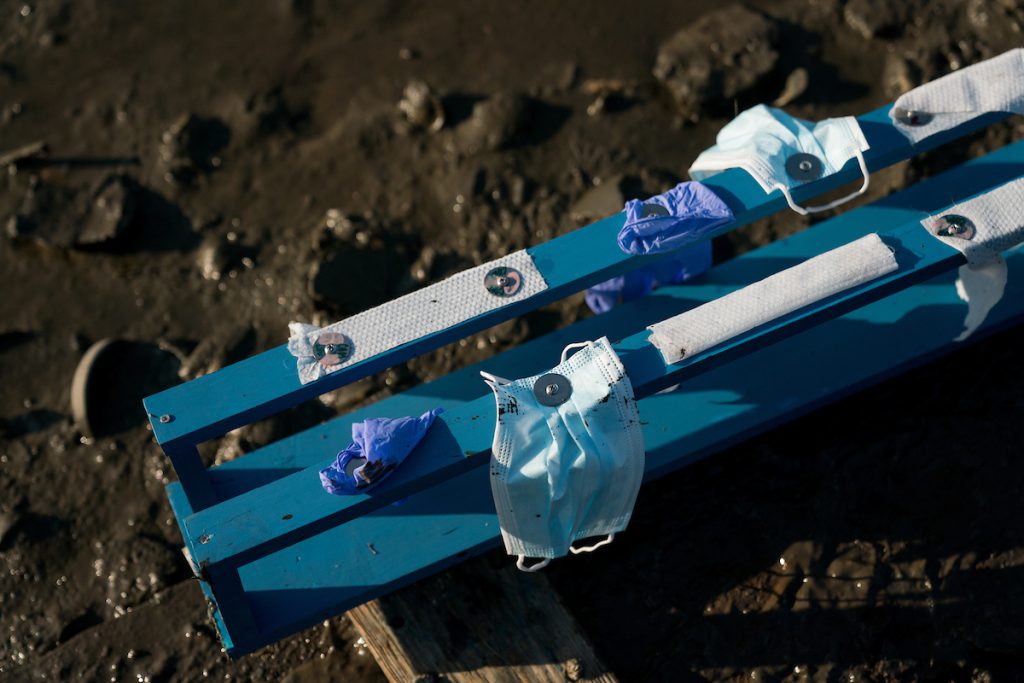
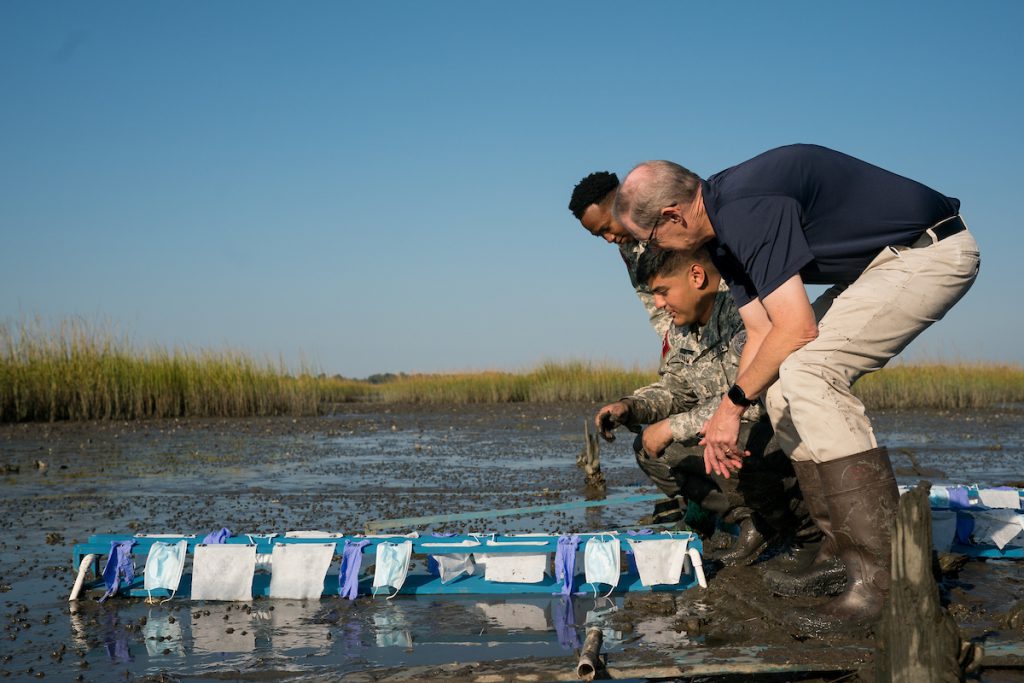
 Prestigious Cincinnati and MacArthur awards presented to Citadel cadets
Prestigious Cincinnati and MacArthur awards presented to Citadel cadets Looking ahead to the major events of 2026-27
Looking ahead to the major events of 2026-27 Upcoming News from The Citadel – February 2026
Upcoming News from The Citadel – February 2026

